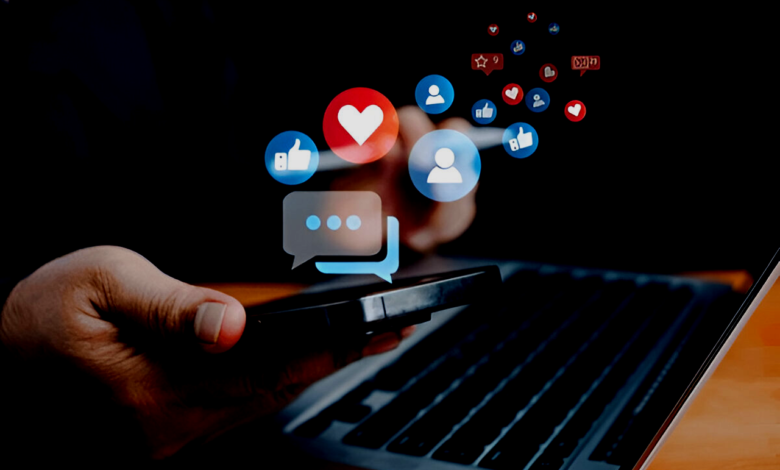
📱 Social Media & Copyright Infringement: How to Avoid Legal Trouble
Social Media & Copyright Infringement avoid legal trouble by understanding copyright laws and protecting your content on social media platforms.
In today’s digital age, social media has become an integral part of our daily lives, offering a platform for creativity, communication, and content sharing. However, with the ease of sharing content comes the risk of copyright infringement, a legal issue that can lead to serious consequences. Whether you’re an individual user, a content creator, or a business, understanding the nuances of copyright law is essential to avoid legal trouble. This article delves into the complexities of social media and copyright infringement, providing actionable insights to help you navigate this challenging landscape while protecting your work and respecting the rights of others.
Copyright infringement on social media occurs when someone uses another person’s copyrighted material without permission. This can include images, videos, music, text, or any other creative work. The widespread availability of content online often leads to unintentional violations, but ignorance of the law is not a valid defense. By educating yourself about copyright laws, implementing best practices, and using tools to protect your content, you can minimize the risk of legal disputes and foster a culture of respect for intellectual property.
Understanding Copyright Law
Copyright law is designed to protect the rights of creators by granting them exclusive control over their original works. This includes the right to reproduce, distribute, display, and perform the work. On social media platforms, copyright protection applies to a wide range of content, from photographs and videos to written posts and graphic designs. However, the global nature of social media complicates matters, as copyright laws vary by country. For instance, the United States follows the Copyright Act of 1976, while the European Union has its own set of regulations under the Copyright Directive.
One common misconception is that giving credit to the original creator is enough to avoid copyright infringement. While attribution is a good practice, it does not replace the need for proper licensing or permission. For example, reposting a photographer’s image with a credit line may still be considered infringement if you don’t have explicit consent. Additionally, social media platforms often have their own policies regarding copyright, which users must adhere to. Platforms like Instagram, Facebook, and YouTube use automated systems like Content ID to detect and address copyright violations, but these systems are not foolproof.
How Copyright Infringement Occurs on Social Media
Social media platforms make it incredibly easy to share content, but this convenience often leads to unintentional copyright violations. One of the most common scenarios is the unauthorized use of images. For instance, a user might download a photo from a website and post it on their Instagram account without realizing that the image is protected by copyright. Similarly, businesses often use stock photos without verifying the licensing terms, which can result in legal action from the copyright holder.
Another frequent issue is the use of music in videos. Many users add popular songs to their TikTok or YouTube videos without obtaining the necessary licenses. Even if the video is not monetized, this can still constitute infringement. Additionally, memes and remixes, which are prevalent on social media, often involve the use of copyrighted material. While some creators argue that these fall under “fair use,” this is a legally complex area that depends on factors like the purpose of use, the nature of the work, and the amount of material used.
The Role of Fair Use
Fair use is a legal doctrine that allows limited use of copyrighted material without permission for purposes such as criticism, commentary, news reporting, education, and parody. However, determining whether a particular use qualifies as fair use can be challenging. Courts consider four factors when evaluating fair use claims:
The purpose and character of the use, including whether it is commercial or transformative.
The nature of the copyrighted work.
The amount and substantiality of the portion used in relation to the copyrighted work as a whole.
The effect of the use on the potential market for or value of the copyrighted work.
For example, a YouTuber creating a review of a movie might include short clips under fair use, but using the entire film would likely not qualify. Similarly, a meme that transforms the original work in a humorous or satirical way might be protected, but simply reposting an image without adding new meaning could lead to infringement claims.
Consequences of Copyright Infringement
The consequences of copyright infringement on social media can be severe. Copyright holders have the right to issue takedown notices under the Digital Millennium Copyright Act (DMCA), which requires platforms to remove infringing content. Repeated violations can result in account suspension or termination. In some cases, copyright holders may pursue legal action, seeking damages that can range from hundreds to thousands of dollars per infringement.
For businesses, the stakes are even higher. A single copyright claim can damage a company’s reputation and lead to costly legal battles. Moreover, social media platforms may impose additional penalties, such as restricting access to advertising tools or removing verified status. To avoid these risks, it’s crucial to take proactive steps to ensure compliance with copyright laws.
Best Practices to Avoid Copyright Infringement
Create Original Content: The simplest way to avoid copyright issues is to create and share your own content. This not only protects you from legal trouble but also helps establish your unique voice and brand.
Use Licensed Material: If you need to use someone else’s work, ensure that you have the appropriate license. Many platforms offer royalty-free music, images, and videos that can be used legally.
Understand Fair Use: Familiarize yourself with the principles of fair use, but exercise caution. When in doubt, consult a legal professional to assess whether your use qualifies.
Give Proper Attribution: While attribution alone is not sufficient to avoid infringement, it is a good practice to credit the original creator whenever possible.
Monitor Your Content: Regularly review your social media accounts to ensure that all shared content complies with copyright laws. If you receive a takedown notice, respond promptly and remove the content in question.
Protecting Your Own Content
If you’re a content creator, protecting your work from unauthorized use is equally important. Start by adding watermarks or copyright notices to your images and videos. This not only deters potential infringers but also makes it easier to prove ownership in case of a dispute.
Consider registering your work with the relevant copyright office. While copyright protection is automatic upon creation, registration provides additional legal benefits, such as the ability to sue for statutory damages. Additionally, use tools like reverse image search to monitor the internet for unauthorized use of your content.
The Role of Social Media Platforms
Social media platforms play a crucial role in addressing copyright infringement. Most platforms have mechanisms in place to handle copyright claims, such as DMCA takedown requests. However, these systems are not perfect and can sometimes result in false claims or overzealous enforcement.
As a user, it’s important to understand the platform’s policies and procedures for handling copyright issues. If you believe your content was wrongly flagged, most platforms offer a counter-notification process to dispute the claim.
Read More: 🖥 Software Piracy & the Law: What Every Developer Must Know
Conclusion
Navigating the intersection of social media and copyright law can be challenging, but it is essential for anyone who creates or shares content online. By understanding the basics of copyright law, recognizing the risks of infringement, and implementing best practices, you can protect yourself from legal trouble and foster a culture of respect for intellectual property. Whether you’re an individual user or a business, taking these steps will help you make the most of social media while staying on the right side of the law.
In conclusion, social media offers incredible opportunities for creativity and connection, but it also comes with responsibilities. Copyright infringement is a serious issue that can have far-reaching consequences, but with the right knowledge and precautions, you can avoid legal pitfalls and focus on what matters most—creating and sharing meaningful content. By respecting the rights of others and protecting your own work, you contribute to a healthier and more ethical digital ecosystem.
FAQs
What is copyright infringement on social media?
Copyright infringement occurs when someone uses another person’s copyrighted material, such as images, videos, or music, without permission on social media platforms.
Can I use copyrighted material if I give credit?
Giving credit is a good practice but does not replace the need for proper licensing or permission. Unauthorized use can still lead to infringement claims.
What is fair use, and how does it apply to social media?
Fair use allows limited use of copyrighted material for purposes like commentary, criticism, or parody. However, it is a legally complex area and depends on specific factors.
What should I do if my content is used without permission?
If your content is used without permission, you can issue a DMCA takedown notice to the platform hosting the infringing material.
How can I protect my own content from being stolen?
Add watermarks or copyright notices to your work, register your content with the copyright office, and use tools like reverse image search to monitor unauthorized use.








One Comment